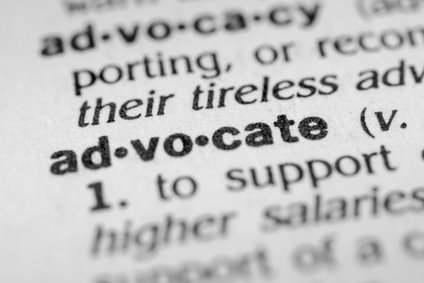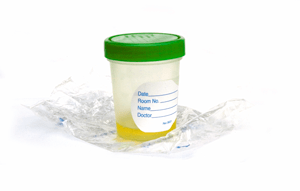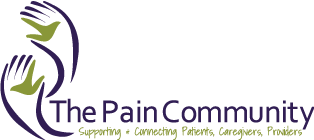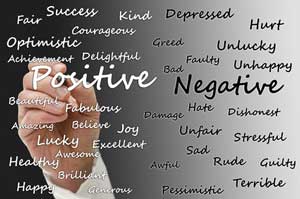-
Teresa Shaffer wrote a new post 2 years, 9 months ago
Before being diagnosed with multiple autoimmune disorders and conditions, explaining my pain levels to a healthcare provider was easy. If I had a sprained wrist or a broken bone, they could see the injury. Using […]

-
Teresa Shaffer commented on the post, I Am So Tired of Fighting for Chronic Illness Care 6 years, 5 months ago
Hi Charlie,
Thank you for the comment on my blog. I do understand exactly how you feel. In the push to stop the senseless deaths from illicit and illegal street drugs/opioids, people with pain has become a […] -
Teresa Shaffer wrote a new post 6 years, 8 months ago
When did it become acceptable to treat people with chronic illness and pain as if they did something to deserve what is happening to their lives?
When did it become acceptable for healthcare providers to […]

-
Teresa Shaffer commented on the post, I Am Not a Criminal! 8 years, 3 months ago
Hello Carrie74,
I understand completely what you are saying. It is very hard for someone who does not live with pain to understand the daily struggles that we have. The grief we go though for the life we once […]
-
Teresa Shaffer commented on the post, Now is the Time to Scream, Holler and Shout! 8 years, 3 months ago
Hello William,
Thank you for reading my blog and for your insights. We the people living with pain must come together to make change. Yet so many are afraid to speak up out of fear of losing the pain care they […]
-
Teresa Shaffer commented on the post, You Are So Much More Than Your Pain! 9 years, 1 month ago
Hi Dee,
I left you a message on the other blog that you visited it is called, “In Search of Someone Like Me: Finding Online Pain Support, published on November 25, 2014.I hope you see both of the messages and […]
-
Teresa Shaffer commented on the post, In Search of Someone Like Me: Finding Online Pain Support 9 years, 1 month ago
Hi Dee,
It is nice to meet you. I wish it was under better circumstances. I did read your story on one of the other blogs that I wrote. It is titled, “You are so much more than your pain” and it was published […]
-
Teresa Shaffer wrote a new post 9 years, 2 months ago
I recently had the pleasure to be on a telephone support call for people with pain. Since I also live with pain I know how it helps to talk directly to others who truly understand what a day is like in the life of […]

-
Teresa Shaffer wrote a new post 9 years, 4 months ago
Part 1
Responses to What’s Your Pain IQ, revealed a gem; over a quarter missed which healthcare providers treated pain. It is often confusing about who could, should and does treat pain. In order to provide c […]

-
Teresa Shaffer commented on the post, Me and Mam-ma both have Ouchies! 9 years, 6 months ago
Hi Janice,
Thank you for your kind comments. I do hope that this blog helps other grandparents to know that they are not alone on this journey. School is out for the summer next week and I will have my grandson […]
-
Teresa Shaffer wrote a new post 9 years, 7 months ago
(Written with Teresa’s grandson)
Many of us have had to deal with the fact that we live with pain. We’ve had to accept that our pain has stolen from us: our energy levels, our careers and sometimes family and […]

-
Teresa Shaffer commented on the post, I Am Not a Criminal! 9 years, 7 months ago
Pbradd01,
Thank you, with the abuse of prescription medications in the news just about everyday it is straining and even preventing trusting relationships from being formed between pain patients and healthcare […]
-
Teresa Shaffer wrote a new post 9 years, 8 months ago
-
Teresa Shaffer wrote a new post 9 years, 9 months ago
-
Teresa Shaffer wrote a new post 10 years, 1 month ago
-
Thank you for sharing so well , I will check the other out!!
-
Wow! There are so many options out there for connecting with people. I can’t seem to type fast enough to keep up with the online chats. I do like to lurk and read though because it makes me feel a little bit more connected to folks. The discussion forums and archived blogs have been a diamond mine of coping tips and treatment options. I love to read other people’s experiences or thoughts on pain stuff. Thank you for sharing so well about the benefits of connecting.
-
-
Teresa Shaffer wrote a new post 10 years, 1 month ago
-
Teresa Shaffer wrote a new post 10 years, 2 months ago
 Recently I read an article titled, “Drug-Test Physicians? Docs Say ‘No Way”. I was lost for words. I could do nothing but sit and shake my head. Then, I wanted to scream so loud that all the physicians who were […]
Recently I read an article titled, “Drug-Test Physicians? Docs Say ‘No Way”. I was lost for words. I could do nothing but sit and shake my head. Then, I wanted to scream so loud that all the physicians who were […]-
I’m singing Teresa can you hear me?
Great Blog! You nailed it! Fair is fair – no matter who or what group you talk about. I can not believe their excuses for not being drug tested. Nurses are randomly tested all the time. Tested on new employment, tested randomly, tested if there is cause to suspect a problem.I get the reports for MQAC (Medical Quality Assurance Commission of WA State) Each time I get a report there is at least one if not more physicians being sanctioned due to diversion of controlled substances, opioid Abuse, or alcohol abuse that has impaired their ability to practice medicine safely. By the way that report comes monthly. The numbers are staggering to me. So glad that they got caught and are now being helped and monitored carefully through a state sponsored program for rehab of professionals with substance abuse issues. They remain in practice as long as they comply with the stipulations in their plan from the commission. It is so easy for them to access controlled medications.
I also see Nurses who divert and abuse drugs meant for their patients. this is a sad commentary on the compassion and caring that is inherent in nursing. It hurts me heart to see or that this occurring among my colleagues in Nursing.
Personally as a nurse I would submit to a random drug screen is requested by my employer. I have nothing to hide and of course right now it would be positive as I take an opioid medication daily for my pain. So we would have to have a discussion of why and how. Many hospitals and clinics have a policy of random drug testing. (in 48 years of nursing truthfully I have never been randomly tested even though it is a policy to do so. I guess my number never gets picked – no one wonder I never win the lottery) I have been asked to submit to drug screening for new employment (at least once) and I always complied with this request.As a pain patient, I have already told my prescribing primary Physician that I will always be honest and transparent with him about the medications he prescribes to me – I will bring in my prescription bottles if he wants to do a pill count BUT I will not submit to random drug testing UNLESS he can show me that every other person coming to that clinic is randomly drug tested on a regular basis I.E. show me the proof.
Teresa your Blog just points out once more that we as People in Pain are held to higher standard. Thank you for taking the time to pull this article apart and call it what it is – unfair discrimination and labeling.
-
-
Teresa Shaffer wrote a new post 10 years, 3 months ago
-
Teresa Shaffer wrote a new post 10 years, 4 months ago
 I recently wrote a blog titled, Enough is Enough! Stop the Stigma Against People Living with Pain. This is the second entry sharing the frustration that I, along with other people living with pain, face every day. […]
I recently wrote a blog titled, Enough is Enough! Stop the Stigma Against People Living with Pain. This is the second entry sharing the frustration that I, along with other people living with pain, face every day. […]-
Bravo Teresa what an amazing blog. Thank you for being so honest and putting it out on the table.
Yes, I too am sick and tired of the endless media coverage that is biased, half truths and blatantly puts the blame of the drug abuse epidemic on the backs of those of us in pain.
There are 2 epidemics – drug abuse addiction and the undertreatment or might I be bold enough to say mistreatment of those in pain.
When someone drinks to excess – drives a car and kills innocent people or themselves do we hear an outcry in the media for the prohibition of alcohol? Never!!! But let one person obtain pain medications illegally via deception, robbery or other illegal avenue and overdose and / or die there is an immediate outcry in the media for the removal of all prescription pain medications,
The medications are demonized and with it the millions of persons who depend on these same medications to live a life without excruciating 24/7 pain.
We need better pain treatment AND we need better treatment for,drug abuseaddiction. 2 separate issues that require 2 separate solutions.
Thank you Teresa for challenging each and every one of us to speak out, shout and scream about the injustices done to people in pain. I see this from 2 points of view- that of a person in pain and that of a clinician who helps people in pain find solutions and treatment that addresses their unique pain issues. Pain is complex and the solutions are complex as well. -
Kudos for your frankness, Teresa! This is one blog that all must share and encourage comments from the many who live with pain everyday. You are so right—Enough is enough and together we must scream, holler and shout. If not, we are to blame that pain care does not improve and this terrible state of affairs does not return to sanity and humane discourse.
-
Thank you ladies. It is my hope that this will help people living with pain to stop being afraid of speaking up.
It is our time be heard and heard we must be!
-
-
Teresa Shaffer wrote a new post 10 years, 4 months ago
 It seems like just about every media article talking about pain medications has become a feeding frenzy which reports one side of the story. They take advantage of the uninformed and promote fear with biased and unsubstantiated claims that everyone who is prescribed an opioid medication has or will become addicted to the medications. They feed into the fear that if you have a loved one or friend who is prescribed one of these medications then you had better watch them closely because once addicted they will steal, cheat and lie to get their “fix.” This, my friend, is propaganda [information which is biased or misleading nature and used to promote or publicize a particular political cause or point of view].
It seems like just about every media article talking about pain medications has become a feeding frenzy which reports one side of the story. They take advantage of the uninformed and promote fear with biased and unsubstantiated claims that everyone who is prescribed an opioid medication has or will become addicted to the medications. They feed into the fear that if you have a loved one or friend who is prescribed one of these medications then you had better watch them closely because once addicted they will steal, cheat and lie to get their “fix.” This, my friend, is propaganda [information which is biased or misleading nature and used to promote or publicize a particular political cause or point of view].I am so sick of reading these articles. I am so angry at all those who continue to suggest, promote and endorse these types of stories to the media in an attempt to influence and sometimes brow beat government agencies and politicians to legislate tougher laws and regulations. They claim “their cause” is to address prescription drug abuse to prevent overdose and death, but their methods are short sighted. The so-called “un-intentional” consequence, to me, seems quite intentional. Why put the onus of substance abuse on people living with pain? We did not create this public health problem nor are most of us misusing, abusing or selling our pain medicine. We are too busy trying the best way we know how to live a worthwhile life with another public health problem—the undertreatment of pain! Why make it harder for the legitimate person with pain to obtain an effective medication needed to lessen their daily agony? Why scare our doctors out of wanting to help treat us? Don’t we have a right for some sense of normalcy in our lives?
You notice there is a lot of information missing from these articles. There is no mention of how pain medications allow some people living with pain to have functional lives. There is no mention of how pain medications allow some people living with pain to continue to work. There is no mention of how pain medications allow some people living with pain to have quality in their life. We want nothing more than to have our pain treated in a manner that allows us to live our lives just like people who have other chronic medical conditions, like heart disease, diabetes, cancer and so on. As with any chronic disease, it is not all about taking medications. As with other diseases, when you have chronic pain, it means a full treatment plan is required to help lessen the pain and regain function. People with pain often use exercise, physical therapy, water therapy, massage and so much more. It is NOT just a pill for every ill.
When someone reads one of these poorly researched and unbalanced articles, I can imagine that they start thinking about a family member or friend who lives with pain. Then, they may question whether that person has real or legitimate pain. I know readers must think that if you are taking an opioid pain medication for pain that you must be addicted to them. It’s no wonder; the definition of addiction as compared to physical dependence is often confused as one in the same and this is incorrect. This information is often touted and reinforced by so-called experts who know little about pain and its management and incorrectly equate pain treatment as all about the medications prescribed.
Please allow me to enlighten those of you who do not know the difference between tolerance, dependence, and addiction. These definitions have been recommended by respected medical societies, like the American Academy of Addiction Medicine (ASAM), the American Pain Society (APS) and the American Academy of Pain Medicine (AAPM).
[bullet_list icon=”check” indent=”20px”]
Tolerance – Tolerance refers to a situation where a medicine becomes less effective over time. (Your body adapts and gets use to it.)
Dependence – Dependence means that a person who has been taking a medication for a long period of time can develop symptoms of withdrawal if the medication is suddenly stopped, the dose is lowered too quickly or another medication is given that reverses the effects. (Your body adapts and gets use to it.) This effect can happen with many medications not just pain medications, like steroids, certain heart medications and anti-depressants.
Addiction – Addiction is a primary, chronic disease of brain reward, motivation, memory and related [nervous system] circuitry (ASAM). It is a condition where there is craving for this substance, the compulsive use despite harm, and impulse control loss of how they use the medication. The person does not care that they are harming themselves or others; they will do whatever it takes to obtain medications. They will engage in unacceptable and unsafe behaviors.[/bullet_list]
If you have a past history or current history of substance abuse the chance you will develop a problem taking opioid medications is higher than someone who does not have that history. Your level of risk should be considered before opioids are recommended. Yet, with open communication and close monitoring by your health care professional, even those at higher risk can take these pain medications more safely.
It is important to emphasize that no matter what your circumstance that these medications can be prescribed appropriately by knowledgeable clinicians and you take the medication safely if you do so as directed and report any problems immediately.
So how do we change this growing stigma against people living with pain? How do we fight back?
We get out there and enjoy our lives. We get out and do what we want to do, when we want to do it. We don’t let the fact that we use a cane, walker, crutches, wheelchair and other medical devices define us as part of the problem of drug abuse.
We stay informed and share our knowledge. When a friend or family member questions about addiction, we make sure we can give them facts and direct them to reliable resources. We must stop all the myths that are out there.
We must fight back with truth. Get angry and use that energy in a positive way. Take the time—NO, MAKE THE TIME and read what is published by the media. Comment back. Give them the facts and remind them of the harm they are contributing to by fueling distortions and misconceptions. Make them learn the other side of the story; offer to be interviewed, submit a letter to the editor, write a blog—take them to task.Together we can make a change for the better. We can help stop this feeding frenzy that is making our lives with pain much more difficult than it has to be. If we don’t, who will?
-
Amen, Sister!!! Get angry and get active!!! The silence is far too painful.
-
Agree with Theresa in a big way. Unfortunately we are now seeing a progression of all this to chronic pain isn’t that bad or just doesn’t exist. Several articles are attacking the 2011 IOM report on chronic pain. One of them was titled “Commentary: Exaggerating our pain” A quote from that article ““There are certainly 100 million people who experience back pain and arthritis,” he said. “These are common problems. Is there 100 million who have chronic pain that is as consequential as cancer? No. “You don’t want to over-medicalize something.” (who does he think he is, believing HE can say just how bad my pain is and whether it is worth treating?) The City of Chicago is suing pharmaceutical companies ““They knew—and had known for years—that opioids were too addictive and too debilitating for long-term use for chronic non-cancer pain,” (which we know is an out right lie-opioids work well for many types of pain (and there are studies to support that). Some insurance companies will only pay for 90 days of opioids; MaineCare won’t allow opioids with a few exceptions, Louisiana Medicaid will not treat Chronic pain at all. An organization called Maine collaboration seeks to “teach” doctors Opioids shouldn’t be used for non cancer pain (and doubtful with that) as well as teach “these people” (referring to people with chronic pain) we can’t make all their pain go away. I continue as the Portland Press herald prints mostly only the negative (they supported big time the Maine Collaborative, refusing to print my response) I agree with Theresa especially #3. It is important we put a face on Chronic Pain and not let them get away with “these people” remarks.
-
Thank you, Petmom1 & Janice R. It continues to boggle my mind how some people who have given themselves the titles of ‘experts” get the media and other people to actually believe everything they say.
-
- Load More






AH….CHEW and OUCH! I hate to puke even when it does not stir up pain.